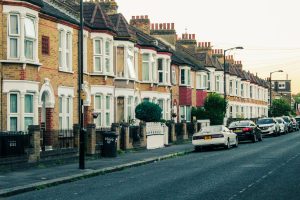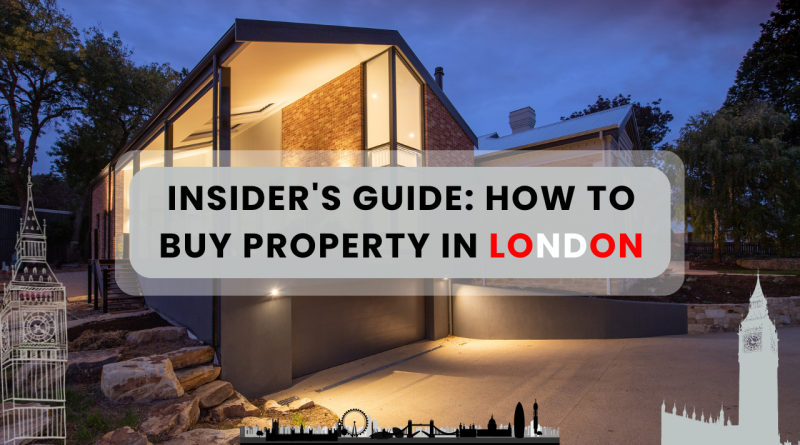Insider’s Guide: How to Buy Property in London Like a Pro
Table of Contents
Buying property in London can be an exhilarating experience, with the city offering a diverse range of options from historic townhouses to sleek, modern apartments. However, the process can also be daunting due to the complexity of the market, the high prices, and the legal intricacies involved. This guide aims to simplify the process, providing you with essential information and practical tips to help you navigate the London property market successfully.
Here’s a comprehensive guide to Buy Property in London

Understanding the London Property Market
Market Overview
London’s property market is one of the most dynamic and expensive in the world. Prices vary significantly across the city’s 32 boroughs, influenced by factors such as proximity to central London, quality of local amenities, and transport links. Prime areas like Kensington, Chelsea, and Westminster command the highest prices, while outer boroughs like Croydon and Barking offer more affordable options.
Current Trends
As of 2024, the London property market is showing signs of resilience, with a steady demand for residential properties despite economic uncertainties. There is a noticeable trend towards hybrid living spaces, with buyers seeking properties that offer the flexibility of home offices and outdoor spaces.
Key Steps in the Buying Process

1. Setting Your Budget
Before you start house hunting, it’s crucial to determine how much you can afford. This includes:
- Deposit: Typically, you need at least 10% of the property price for a deposit, though a larger deposit can provide better mortgage rates.
- Mortgage: Consult with mortgage advisors to understand how much you can borrow. Remember to factor in interest rates and the length of the mortgage.
- Additional Costs: Include stamp duty, legal fees, survey costs, and potential renovation costs.
2. Mortgage Pre-Approval
Getting a mortgage agreement in principle (AIP) before you start viewing properties can give you a clear picture of your budget and make you a more attractive buyer to sellers. This involves a preliminary assessment by a lender based on your financial situation.
3. Choosing the Right Area
London’s boroughs each have their unique charm and price points. Research neighborhoods considering factors such as:
- Proximity to work and schools
- Transport links
- Local amenities like parks, shops, and restaurants
- Safety and community vibe
Finding Your Ideal Property

1. Online Property Portals
Websites like Rightmove, Zoopla, and OnTheMarket are excellent starting points for your search. These platforms allow you to filter properties based on your criteria, including price, location, and property type.
2. Estate Agents
Engage with local estate agents who have in-depth knowledge of specific areas. They can provide insights into market trends and offer access to properties that may not be listed online.
3. Property Viewings
Arrange viewings for properties that catch your eye. Pay attention to the condition of the property, any potential renovation needs, and the surrounding area. Don’t hesitate to ask questions about the property’s history and any included fixtures and fittings.
Making an Offer

Once you find a property you like, make an offer through the estate agent. It’s common to offer below the asking price but be prepared for negotiations. Ensure your offer is subject to a satisfactory survey and mortgage approval.
Legal Considerations
1. Conveyancing
You’ll need a solicitor or conveyancer to handle the legal aspects of the purchase. They will conduct searches, check the contract, and handle the transfer of funds.
2. Surveys
Commission a survey to identify any structural issues with the property. There are different levels of surveys, from basic valuations to detailed building surveys.
Completing the Purchase

1. Exchange of Contracts
Once all checks are completed and both parties are satisfied, contracts are exchanged. At this point, you’ll pay a non-refundable deposit (usually 10% of the purchase price).
2. Completion
On the agreed completion date, the remaining funds are transferred, and you receive the keys to your new property. Congratulations, you are now a homeowner in London.
Post-Purchase Considerations
1. Moving In
Plan your move carefully, considering the logistics of transporting your belongings and setting up utilities in your new home.
2. Ongoing Costs
Be prepared for ongoing costs such as council tax, utility bills, maintenance, and potential service charges if you’ve bought a leasehold property.
Is it worth buying a property in London?

In Conclusion, Buying property in London is a significant investment and can be a complex process. However, with thorough research, and careful planning, you can navigate the market successfully and find a property that meets your needs and aspirations. Whether you’re looking for a family home or an investment property, London offers a wealth of opportunities for discerning buyers.




